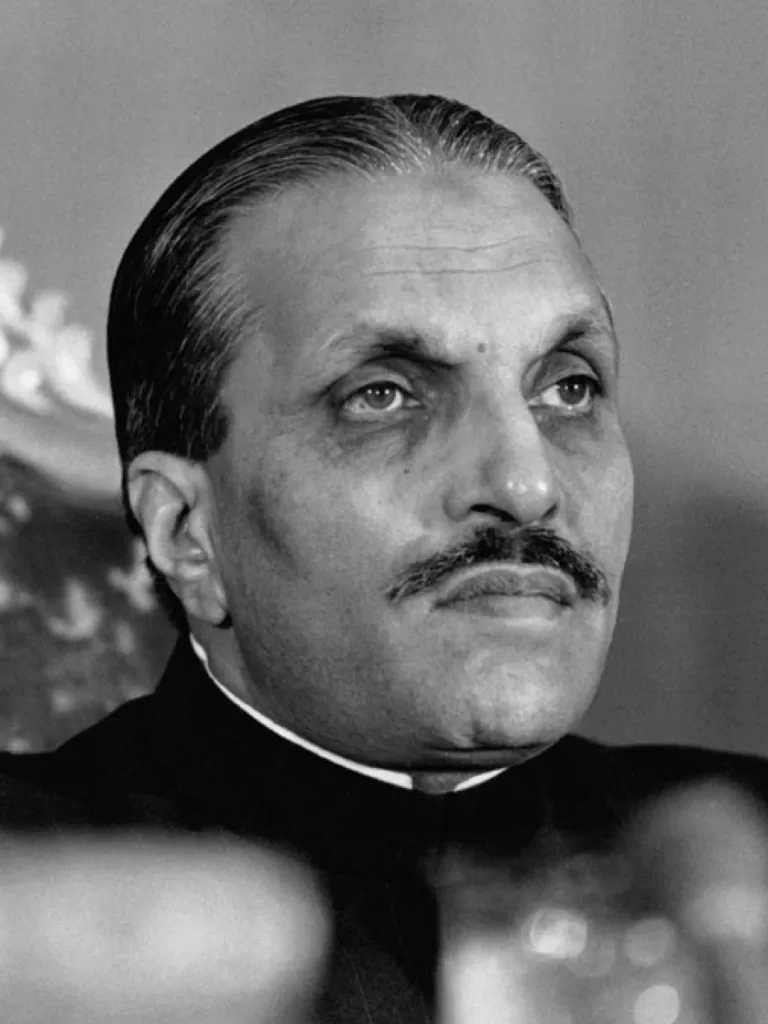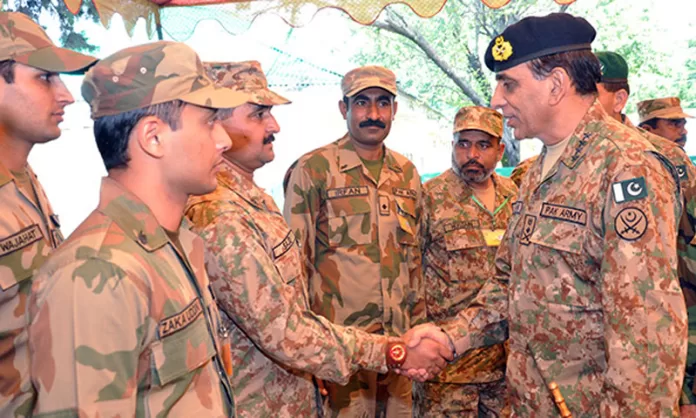Brig (Retd) Muhammad Mehboob Qadir looks critically at how and where went wrong and believes the real hope for the future lies with the common people.
The Military’s barrack language ordinarily is a mix of directness, officiousness and many a times, of incomprehensibility. Possibly it is a logical result of the environment of apprehension and anxiety that engulfs the soldiers in the face of direct danger to life during war and hard driven competence for war during peace. Amongst the whole inventory of this earthy military language, the term ‘Part Worn but Serviceable’ (PWS) belongs to the vocabulary of our Ordnance Corps responsible for equipping, clothing and enabling the Pakistan Army to move.
They are also required to conduct periodic inspections to ensure combat clothing issued to the soldiers is in usable condition. It is during these inspections that phrases such as ‘condemnation’, ‘unfair wear and tear’ and ‘part worn but serviceable’ are used in that order of descending severity. If declared ‘condemned’ the item is considered to have been worn out ‘beyond economical repair’ and is to be replaced by the State. An ‘Unfair wear and tear’ verdict entails not only certain payment by the user but may also require penal action depending upon the degree of neglect so established. The great via media, the most meaningful and generally welcomed by the soldiers is the phrase ‘part worn but serviceable’. This verdict is self-explanatory to the extent that it recognizes the erosion and depletion caused to the item and its remaining useful life without determining blame. Eventually all parties to the transaction are happy and usual business of soldiering proceeds along merrily.
Militaries in the world can claim only few patches of brilliance whereas a genius is rare as a rule. In the Pakistan Army two such gems so far identified are the legal genius who conceived the phrase ‘good order and military discipline’ and converted its breach into a punishable offence. The other should be the logistics genius who invented the term ‘part worn but serviceable’. On a second thought this logistics genius appears more a visionary and an intellectual thinker of a much superior sort. In our case, my suspicion is that he had a touch of political foresight also otherwise he could not have coined a phrase which is applicable to a soldier’s pair of socks with holes in the heels, as well as equally appropriately, to what we have done to our society, the country and the national future.
Take for instance our Constitution, the Parliament and the political institutions which are so indispensable for a country’s political life. Of a number of them which version of the constitution in our country was really framed with a view to develop a healthy political body of the nation and, more importantly, to be observed in letter and spirit? Since they were invariably documents of constitutional expediency for retention of political power by the incumbents, therefore they were not exactly meant to be followed. Also, as these documents were self serving to begin with, they hardly had the popular approval; that is why political light-weights from Ghulam Mohammad to General Pervez Musharraf could abrogate, mutilate or suspend them with impunity. Some of them also had the temerity to manufacture and impose a fresh one. Successive Parliaments and political parties meanwhile, developed a remarkably pliant and profitable culture. Gradually political survival took precedence over politics of principle, a debilitating toxin that has paralysed our entire body politic and placed the country in such a continuing jeopardy.
Watch the arrival of the nimblest dancer of them all on Pakistan’s political stage, just as the country broke up without the inescapable political bonding of a just constitution. It was late Mr Bhutto. He was a consummate politician, a brilliant orator and a great political survivor. But even he fell to the lure of political expediency and lost a once-in-centuries chance to place Pakistan on an honorable constitutional and political course. He also had the rarest of an inside opportunity to rip-out bonapartism in the wake of defeat in the ’71 War. In his quest for self-perpetuation he floundered both the historic opportunities to the lasting regret of Pakistan and its people. In the process he also lost his life, leaving the nation evermore divided. Look at the Constitution (1973) he helped frame for the country and claimed as unanimously approved, albeit under the threat of continuation of a civilian Martial Law. No sooner was it passed that it was amended. The sorry tale does not end here. He almost sank with it but for the shrewd yet politically edgy General Zia Ul Haque who ousted him in the wake of popular protests after general elections during 1977. Mr Bhutto, the ablest and most popularly acclaimed political leader was dismissed and later hung without a significant public protest.

General Zia Ul Haque was a different breed of military coup makers. He invented the clever technique of ‘suspended constitution’ as he could not rule in its effective presence. He was the least likely of the ilk but the one who ruled the longest in our chequered political history. Every time the elected Parliament was packed off and kicked out by the Army, by then its co-passenger, the Superior Judiciary was further compressed. No department of the government machinery faced a greater dilemma for its survival in the face of the soldiers’ gun than Pakistan’s Superior Judiciary. As also none was more ingenious, barring a few noble exceptions, than our Justices to wriggle out of this dead end. They have the rare distinction of inventing the infamous ‘Doctrine of Necessity’ under which a military takeover was legally sanctioned. It was absolutely a stroke of judicial genius that paved the way for all subsequent military coups and the political devastation of our country. It would have been unfair and absurd to expect the Justices to standup to the Martial Law Administrators or other despots alone. Regretfully, by that time our political leadership had completely shed their spine and people became totally disempowered and disillusioned.
The Justices had to hunt with the hounds and run with the hare. However, their judicial improvisation led to a very grave loss to the people of Pakistan. An extremely important organ of the state responsible for the custody of the constitution, and the rule of law became partisan and almost utterly failed to dispense justice on vital national issues brought to its notice. There have been grievous consequences of the destruction of our Superior Judiciary by the Executive. It changed the values and standards of social, political and official conduct from reasonable to rabid. The proverbial long arm of the law was amputated leaving the field open to the criminal, the adventurer, and raw power. A vast majority of citizens were driven first to helplessness, then to despair and finally to the wide spread but explosive collective frustration as is prevalent now. Critically, the very soul of our society lost its faith in the last civilized recourse to correct a wrong – the Superior Courts.
It has become a monumental societal disaster needing to be addressed before any thing else. A Superior Judiciary with integrity is essential that should instead of refining the ‘doctrine of necessity’ to the still more regrettable ‘doctrine of official necessity’, restore public confidence in her ability to dispense justice without fear or favour.
On the other hand our political leadership whose fundamental responsibility it was to plant and nurture a healthy and robust political culture in the country, failed to do so. Their first act of political hara-kiri was committed when in 1952 a serving C-in-C was also made the Defence Minister there by setting a precedence of bending established political practice of military’s subservience to the civilian political leadership, in order to meet expediency of retention of political power. It is always the first compromise in such matters that exposes the rule of law to mutilation. Doors of the state were thrown open to all kinds of highway men, sorcerers and swindlers leaving the country and the people to suffer the consequences of their marauding. Starting from the Indus Basin Water Treaty, Pakistan was pushed into treaty after dubious treaty, unwinnable wars, foreign policy adventures, fatal centralization of federal power, inequitable distribution of natural and financial resources and into the hands of generally exploitive power elite.
Take for example the case of Sui natural gas. Its wells are located in Bugti area of Balochistan. It was piped to Lahore, Rawalpindi and Peshawar by late sixties but not a whiff was given to Balochistan. Other than callousness of the over concentrated federal power, there could be no justification not to provide piped Sui Gas to Balochistan’s provincial capital Quetta until 1984; an amazing insensitivity to the public need and sentiment.
Passage of the NFC Award after 17 years of neglect, siphoning off river waters of other provinces illegally, scam after scam of wheat, sugar, petroleum, steel, and now dilapidated flood protection bunds are but a few more examples. How does a self-respecting nation stomach the open international demand to set-up a transparent flood relief oversight mechanism as the Government of Pakistan suffers from ‘credibility deficit’?
A blessed country we are. Thousands of holes in the entire national canvas and our sails still catch the winds? It is not as astonishing as it looks. There is a reason and a very strong one at that. It is the resilience and pluck of our people which makes our country work. It was the same rag tag people who snatched an independent Pakistan from the jaws of combined British and Congress power. They rebuilt the country after being broken up in two in 1971. It is they who are carrying out business as usual when a suicide bomber, a maniac Taliban killer lurks behind every tree. These salt of the earth, robust and generous common people are our real hope for the future. We may be partly or for that matter, completely worn out but yet again we will pick up pieces and reassemble a nation. We are still serviceable.




